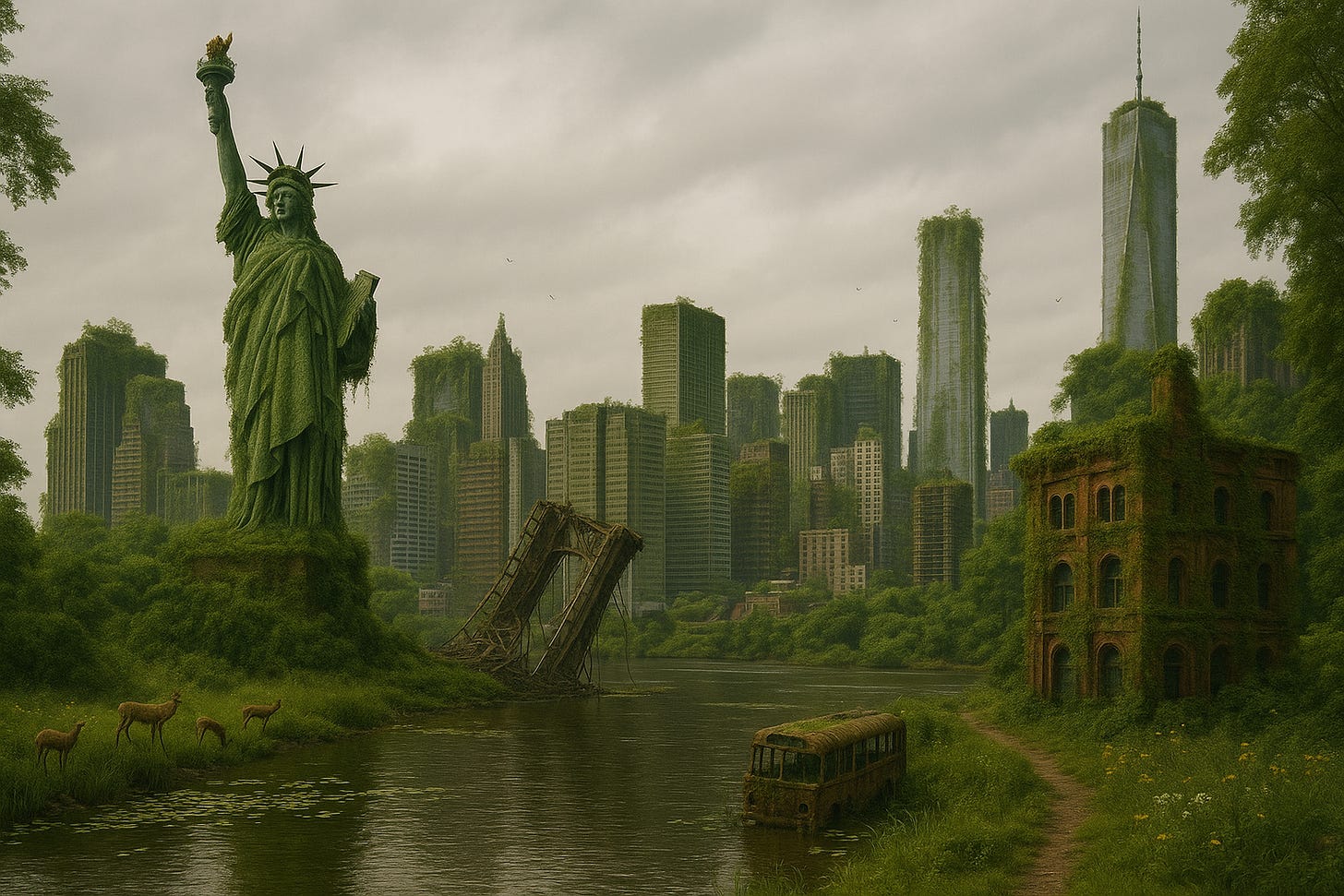By Annette J Beveridge
Have you ever seen derelict houses with the roofs caving in, and where plant life has reclaimed the land?
I remember a somewhat eerie experience while in Corfu many years ago. A village in the hills had been completely abandoned, and the tiny cottages were crumbling. Nature had completely taken over, and the buildings were no longer safe to enter. It was an incredible sight. It conveyed a sense of fragility for humanity that, despite our destructive presence, nature could fight back. It made me realise that there is strength within the natural world, and I had a glimpse of how the land could transform if we were not here.
Nature is an indomitable force. Think about your garden and how sunshine and rain can lead to rampant growth. Within weeks, the grass is overgrown, and plants are somehow manifesting through the cracks in the paving slabs.
We constantly battle the natural world with our need to be tidy. It may seem hard to comprehend the devastating impact we have had on this planet or to imagine just how quickly whole cities could fall under the power of nature if we let it.
So what happens?
If we were no longer around to shape the land, mosses would start to coat buildings, seeds would take advantage of gaps in concrete and eventually, bricks and mortar would crumble. Trees would grow in the cracks in and around the building, and animals would move in. Soon, the landscape would be much quieter, apart from the natural sounds, and there would be no artificial noise or light pollution.
If you remember back to Covid-19, when traffic was greatly reduced, bird song became prominent. So many people noticed it and relished it. Yet, this temporary respite where otters and deer emerged into the streets and birds sang heartily, it all vanished when we began to start up life again.
Without us creating damaging and dangerous emissions, air quality would improve, the sky would be clearer and the landscape fresher. Without electric light, nights would be darker, and the only natural light would be the sun, moon and the stars. Wildlife would benefit greatly.
According to an article in the BBC Science Focus magazine, after just two days, the subways in New York could be impassable due to flooding. This is because there would be no active maintenance or pumping. After just seven days, approximately 450 nuclear reactors would go into meltdown. In just a year, any domestic or farm animals would perish.
Fast-forward three years, and cities would be flooded with water due to pipes bursting in the colder regions of the planet. Buildings would lose structural integrity, and in a few decades, crops would disappear, with wild varieties taking over. In a few centuries, suburbia would become a forest, and the species most under threat due to humanity would begin to rebound.
Read more: The ocean’s whip-tailed predator
The reality
Metal structures which hold up our streets to allow transport beneath would corrode. Eventually, these might become city rivers. Seeds would quickly take root in tiny gaps between paving stones, leading to roads and pavements breaking. Bridges would also fall because, without regular work to keep the structures safe, saplings would start to take hold between steel rivets.
Nature is relentless, and without us holding it back, our concrete jungles would be covered with shrubbery, grasslands and trees. Insect numbers would greatly improve, and top predators would move into our former cities.
Read more: The masters of disguise
With 8,213,269,530 people in the world (as of March 2025), we must understand we are collectively destroying the Earth’s natural resources, which, although vital to our survival, are limited by the Earth’s potential to renew them.
Humanity, with its great potential, is also negative, destructive and remarkably short-sighted. By controlling the landscape, we harm the natural elements which are vital for a healthy life. We are an overpopulated species that wreaks havoc on the natural world, all to make money and live in a way that isolates us from the natural world. Yet, we are an intrinsic part of nature.
While forests, food, freshwater and wildlife can be considered renewable resources, metal ores and, of course, fossil fuels are not. Plundering the world’s resources is a destructive and foolhardy venture, and we will ultimately realise that many of these resources are not infinite, and that we have seriously harmed our own well-being. Our need to control may actually in the end, be our undoing.
One Planet News: Bats and Newts - Poor Excuse for Anti-Nature Rhetoric
One Planet News is an online newsletter and digital magazine. Set up by journalist and conservationist Annette J Beveridge, the aim is to bring the wonders of the natural world to life. Come and join us.







At last! Someone with the vision and imagination to show us for what we really are- a destructive Ape with two personalities! One that hates and one that loves... Sadly it's probably in our DNA so as we head to the final period of humanity, let's rejoice that Nature will finally rule the planet. We just won't be here to see it!